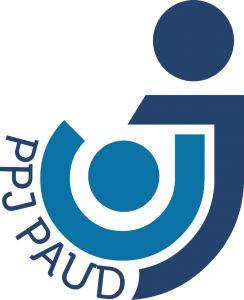MINIMALIST PARENTING: POLA PENGASUHAN UNTUK ORANGTUA GENERASI MILENIAL
DOI:
https://doi.org/10.30736/jce.v5i2.598Keywords:
Minimalist parenting, Orangtua, Generasi Milenial,Abstract
Penerapan pembelajaran yang terintegrasi dengan parenting tidak hanya didelegasikan pada pihak sekolah namun kehadiran orangtua memiliki peran utama.Tujuan dari penelitain ini adalah untuk mengetahui penerapan parenting para orangtua generasi milenial dengan perkembangan teknologi informasi yang masif. Kemudahan akses pada era digital sebagai solusi sekaligus tantangan terhadap kelebihan informasi digital.Penelitian ini menggunkan metode literature review. Hasil dari penelitian memberikan informasi bahwa tekhnologi digital sebagai sarana pemerolehan informasi yang paling diminati para orangtua milenial. Penerapan parenting pada era digital membuat para orangtua impulsif terhadap penawaran program belajar online dan kesulitan untuk menentukan informasi yang paling tepat dan kredibel dengan banyaknya informasi yang bertebaran di dunia digital. Berdasarkan hasil penelitian dapat disimpulkan bahwa penerapan minimalist parenting menjadi solusi untuk orangtua generasi milenial karena berfokus pada hubungan keluarga yang sehat dan fokus terhadap sesuatu yang penting untuk anak. Penerapan parenting tidak dapat digeneralis karena setiap anak memiliki tingkat perkembangan dan kebutuhan yang sangat individualias.References
Afrilia, A. M. (2017). Penggunaan New Media Di Kalangan Ibu Muda Sebagai Media Parenting Masa Kini. Jurnal Komunikasi Dan Kajian Media, 1(1), 31–42.
Cooper, H. M. (1988). The integrative research review: a systematic aproach.
Diskominfo. (2018). Website Portal Resmi Dinas Komunikasi dan Informatika Pemerintah Kabupaten Badung. Dinas Informasi Dan Komunikasi Kabupaten Bandung. https://diskominfo.badungkab.go.id/artikel/17916-pengertian-literasi-media
Flannigan, C., & Dietze, B. (2018). Children, Outdoor Play, and Loose Parts. Journal of Childhood Studies, 42(4), 53–60. https://doi.org/10.18357/jcs.v42i4.18103
Gaol, L. A. L., Mutiara, A. B., Saraswati, N. L., Rahmadini, R., & Hilmah, M. A. (2017). The relationship between social comparison and depressive symptoms among Indonesian Instagram users. Universitas Indonesia International Psychology Symposium for Undergraduate Research, 139(September), 130–137. https://doi.org/10.2991/uipsur-17.2018.19
Gardner, H. (1983). Frames of Mind. basic bookls.
Hopper, E. (2020). Maslow ’ s Hierarchy of Needs Maslow ’ s Hierarchy of Needs. Business, April, 3–5. file:///C:/Users/ADMIN/OneDrive/Documents/02LITERATUR/22mac/Maslow’s Hierarchy.pdf
IDN. (2020). Indonesia Millennial Report. IDN Research Institute, 01, 61. https://www.idntimes.com/indonesiamillennialreport2019
Iprice. (2021). Top 10 Parenting Blogs di Indonesia Versi iprice Group. https://iprice.co.id/trend/insights/top-10-parenting-blogs-di-indonesia-versi-iprice-group/
Jennings, nancy A. (2021). The Marketing of Children’s Toys: Critical Perspectives on Children’s ... - Google Buku. https://books.google.co.id/books?hl=id&lr=&id=NrAmEAAAQBAJ&oi=fnd&pg=PA65&dq=minimalist+parenting&ots=JtyDLo8rcf&sig=yyjkRTV_SXxy0uTXsIXZ8WPY-CQ&redir_esc=y#v=onepage&q=minimalist parenting&f=false
Koh, C., & Dornfest, A. (2013). author of The Daring Book for Girls. bibliomotion.
KOMINFO. (2020). Status Literasi Digital Indonesia 2020: Hasil Survei di 34 Provinsi. November, 1–90.
Livington, G. (2018). More than a million Millennials are becoming moms each year | Pew Research Center. Paw Reseach Center. https://www.pewresearch.org/fact-tank/2018/05/04/more-than-a-million-millennials-are-becoming-moms-each-year/
Microsoft. (2020). Civility, Safety & Interaction Online. February, 1–50.
Rahmawati, N. R., Septiana, N. Z., & Masitoh, F. (2019). Pola Pengasuhan Orangtua Milenial. International Conference on Islamic Education: Challenges in Technology and Literacy Faculty of Education and Teacher Training, 4.
Sari, A. Y., & Arumsari, A. D. (2019). Metode Eksperimen Media Air untuk Perkembangan Sosial Anak Usia Dini. Pedagogi, 5(1–12).
Sari, A. Y., & Rofiyarti, F. (2017). Penerapan Disiplin Sebagai Bentuk Pembinaan Pendidikan Karakter terhadap Anak Usia Dini. Pedagogi, 3(3c), 227–239.
Solihin, L., Utama, B., Pratiwi, I., & Novirina. (2019). Indeks Aktivitas Literasi Membaca 34 Provinsi. Badan Penelitian dan Pengembangan Kementerian Pendidikan dan Kebudayaan. https://litbang.kemdikbud.go.id
Vogel, E. A., Rose, J. P., Roberts, L. R., & Eckles, K. (2014). Social comparison, social media, and self-esteem. Psychology of Popular Media Culture, 3(4), 206–222. https://doi.org/10.1037/ppm0000047
We Are Social & Hootsuite. (2020). Indonesia Digital report 2020. Global Digital Insights, 247. https://datareportal.com/reports/digital-2020-global-digital-overview
Downloads
Published
How to Cite
Issue
Section
License
Please find the rights and licenses in JCE (Journal of Childhood Education). By submitting the article/manuscript of the article, the author(s) agree with this policy. No specific document sign-off is required.
1. License
Use of articles will be governed by the Creative Commons Attribution - ShareAlike license as currently displayed on Creative Commons Attribution-ShareAlike 4.0 International License.
2. Author(s)' Warranties
The author warrants that the article is original, written by stated author(s), has not been published before, contains no unlawful statements, does not infringe the rights of others, is subject to copyright that is vested exclusively in the author and free of any third party rights, and that any necessary written permissions to quote from other sources have been obtained by the author(s).
3. User Rights
JCE (Journal of Childhood Education)'s spirit is to disseminate articles published are as free as possible but there is a little payment for publication. Under the Creative Commons license, JCE (Journal of Childhood Education) permits users to copy, distribute, display, and perform the work for commercial purposes. Users will also need to attribute authors and JCE (Journal of Childhood Education) on distributing works in the journal and other media of publications.
4. Co-Authorship
If the article was jointly prepared by more than one author, any authors submitting the manuscript warrants that he/she has been authorized by all co-authors to be agreed on this copyright and license notice (agreement) on their behalf, and agrees to inform his/her co-authors of the terms of this policy. JCE (Journal of Childhood Education) will not be held liable for anything that may arise due to the author(s) internal dispute. JCE (Journal of Childhood Education) will only communicate with the corresponding author.
5. Miscellaneous
JCE (Journal of Childhood Education) will publish the article (or have it published) in the journal if the article’s editorial process is successfully completed. JCE (Journal of Childhood Education)'s editors may modify the article to a style of punctuation, spelling, capitalization, referencing and usage that deems appropriate. The author acknowledges that the article may be published so that it will be publicly accessible and such access will be free of charge for the readers as mentioned in point 3.
JCE (Journal of Childhood Education) by Universitas Islam Lamongan is licensed under a Creative Commons Attribution-ShareAlike 4.0 International License.Based on a work at http://journalfai.unisla.ac.id/index.php/jce.












